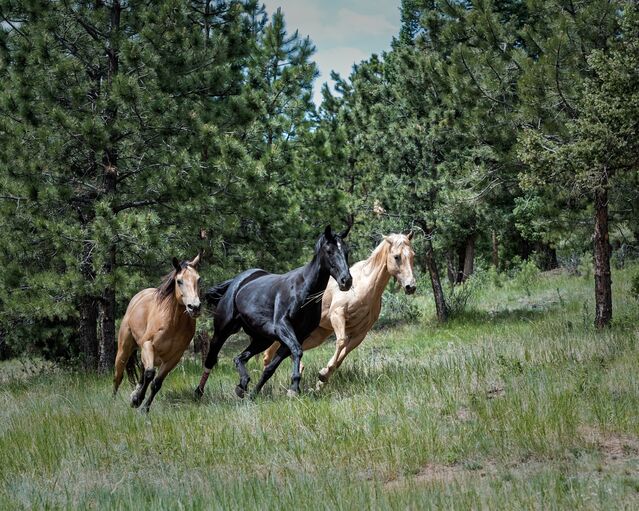Attention
Vulnerability Is Not Weakness
How facing the truth of our humanity makes us stronger.
Posted November 6, 2022 Reviewed by Jessica Schrader
Key points
- Vulnerability is inevitable, a constant hum in the background of our lives.
- Vulnerability is not weakness, nor is it danger. It is the moment your longing bumps against your limits to make your desires come true.
- By facing, feeling, and mattering when faced with vulnerability, you grow strengths that allow you to live your biggest life.

What does it mean to be vulnerable? If you think “weak,” well you’d certainly be in good company. So many smart people, perhaps most, believe the same. But guess what? You’d be wrong. Sure, vulnerability means limitations. Even at our best, there’s a gap between effort and outcome. So is that weakness? We can’t exist as humans without limitations. What living thing, in this world, exists without limitations? How can it be a weakness to be like every other living thing on this planet? Simply put, it’s not.
“You are not the boss of very much at all.”
To be vulnerable is to be affected by factors outside our will and effort. Many pressures bear upon us: the passage of time, the economy, gravity, entropy, momentum, and other physical forces. The weather, our DNA, political forces, geography, viruses, and aging. Even other people play a role in the outcome of things in our lives.
Even our own emotions reveal us as vulnerable. We do not have control over whether or not we feel sad at a bird fallen from its nest, angry when someone kicks a dog, or joy holding a newborn for the first time. When we sense these powerful emotional forces flowing unbidden through our bodies, we realize we are not the boss of very much at all.
Vulnerability is a fact of life. The fact of life. Because everything living will eventually die, vulnerability is inevitable, a constant hum in the background of our lives.
“Vulnerability may be a fact of life. But it’s also a feeling!”
Vulnerability is so important that it’s wired through the same fast system as fear, to grab our attention. That feeling is unrest. A sharp calling to show up for our own lives.
Unrest announces our point of contact with vulnerability. It disrupts us. Unrest nudges us with a quiver or a held breath. It can derail us as our hearts pound and adrenaline shoots through our bloodstreams. Desperately trying to grab our attention in key moments as longing bumps against limits. This. These are our optimal moments to feel emotion and grow.
Unrest urges us to tune inward and experience how it feels right now, as we are faced with the immediate experience of uncertainty and limited control over the things that matter to us.

“Longing, limitations, and becoming more you.”
Longing is a beautiful vitalizing force that pulls us toward a more fulfilling life. Without it we wouldn’t risk, stretch, and open ourselves. We are all born with a natural hunger to experience the rich miracle of consciousness in matter. We want to taste and touch and feel it all, to truly be here. We want to be more than spectators in our lives. Yet, ironically, we are also wired with a protective impulse to protect ourselves. Not just from danger, but from emotional pain and even discomfort.
The world is filled with obstacles and limits to obtaining what we want. The tension between our longing and our limits is simply part of being alive and human: “I want to land that job,” “I want him to love me,” ``I want her to respect me,” “I don’t want to get sick,” “I want my dog to live forever.” Yet we cannot guarantee any of these outcomes. That “I can’t” place is painful. Vulnerability is reality, but it does not feel good. Worse, vulnerability is mistaken for danger and we avoid experiences that are meant to deepen our capacities for living fully.

“Harness vulnerability to grow.”
Our bodies are wise. They use unrest to pinpoint the optimal moment to tune inward and foster growth. A right shoulder grips in tension—but instead of ignoring it you pause, paying careful attention to the discomfort. After a moment of warm interest, muscles release and your shoulder drops slightly. The body registers your awareness and settles. A channel opens to a wave of sadness that enlightens a truth you have been avoiding. Perhaps you’ve been working so hard to get everything done, but simply can’t do it alone. Wishing you were more efficient with more time and energy yet without the limitations that come with being human.
But, we are indeed only human. Therefore, a sadness may rise with pressure on your sternum. Breathing into feeling as it crests and then ebbs, you find that space where you matter. You accept your limitations and gradually feel less alone. More capable of patience and self-compassion. More able to ask for help.
Our unrest is the physical, bodily experience of the here and now. It acknowledges our vulnerability by giving us the opportunity to come home, feel, and foster growth. It is then that vulnerability has transformed from weakness to become our greatest strength and doorway to our best life.




